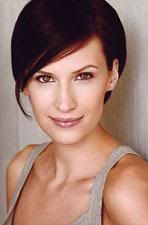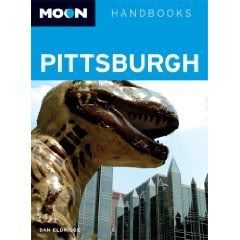 Michal Lemberger is the author of After Abel and Other Stories. Her nonfiction and journalism have appeared in Slate, Salon, Tablet, and other publications, and her poetry has been published in a number of print and online journals, including The Bellevue Literary Review and The Rattling Wall. A story from After Abel was featured in Lilith Magazine. Lemberger holds an MA and PhD in English from UCLA and a BA in English and religion from Barnard College. She has taught the Hebrew Bible as Literature at UCLA and the American Jewish University.
Michal Lemberger is the author of After Abel and Other Stories. Her nonfiction and journalism have appeared in Slate, Salon, Tablet, and other publications, and her poetry has been published in a number of print and online journals, including The Bellevue Literary Review and The Rattling Wall. A story from After Abel was featured in Lilith Magazine. Lemberger holds an MA and PhD in English from UCLA and a BA in English and religion from Barnard College. She has taught the Hebrew Bible as Literature at UCLA and the American Jewish University.
Michal talks about her experience writing, and getting published, in this Author Q&A.
What inspired you to write After Abel?
I’d been teaching Bible as Literature—a subject I love—for many years. With each term, my understanding of the text and the world out of which it was written grew deeper and deeper. During that same time, I had kids, and the fact that women in the Bible are portrayed almost exclusively as mothers struck me more forcefully than it ever had, because although they appear in their capacity as mothers to men’s children, their stories aren’t really told. That seemed to be an opening into which I could step.
Why short stories?
For one thing, I love short stories. I’d always admired their compressed intensity. For another, I wanted to gesture toward the biblical style, which is compact, to say the least. My stories flesh out a lot more than the Bible ever does, but there is that echo there. Also, I think that my imagination is inclined toward the small and detailed. Or maybe I don’t have the stamina for a novel.
What is your writing process?
Good question. I wish I had a sure answer. When I’m working on a story, I write every morning, but in terms of approach, I’m all over the map. Each story in the book was written using different tools. I broke one down, scene by scene, on index cards. For another, I used a flow chart to organize material I had already written. Mostly, though, I just rewrote as many times as I had to until I was satisfied with the result.
What was your favorite part of writing After Abel? The greatest challenge?
I loved writing this book. After a lifetime of calling myself a writer, I finally felt like I had found my subject matter. I loved that I could put all my knowledge about the original material to use in an imaginative way and to sprinkle in little references to the language of the Bible in my own work. Writing “Saul’s Daughter” presented the greatest technical challenge. It took a long time for me to figure out the voice (in this case, voices) in which to tell it. But “Shiloh” was emotionally wrenching to write. That character lives in such a dark place, and I had to go there with her.
How did you go about getting After Abel published?
Very untraditionally and through a lot of luck. I ran into an acquaintance who runs an indie publishing house. We talked shop, and she expressed interest in reading the three stories I’d already written. She and her partner liked them and wanted to publish them. Then I had to crank out the rest of the book in four months.
What tips do you have for those looking to publish traditionally?
Try to work with people you like. I got very lucky, because I landed in a small shop where every writer can get a lot of attention, and where I was involved in many aspects of the production of the book that I wouldn’t have been at a big publishing house.
What are you doing to promote your book?
Q & A’s like this one! I’m doing as many readings/appearances/panels/events as I can. My publisher has sent the book out to be reviewed in as many places as we could think to send it. I’m reaching out to friends and colleagues in academia to try to arrange to present while school is in session. And whatever else comes to mind. I’m a first-time author being published by a small press, so I have to do what I can and then hope that word spreads.
Additional advice for short story writers?
It’s hard to publish short story collections. Publishing houses like to put out big, juicy novels. But if you have work that speaks to an agent, editor, or publisher, you will get the book out there. I don’t know if my observation is true or just anecdotally based on what I’ve seen, but I think it may also help for the collection to be thematically unified.
What do you know now that you wish you knew before you wrote this book?
That I would write it. That all those years of not writing a book—and beating myself up about it—would end. That I’d find my subject matter. I wish I’d had a bit more faith.









